Hello, welcome back to Mind Matter with Dr Ogochukwu Ojiaku Last time we discussed Prejudice and discrimination around mental illness and how we can fight stigma and support individuals with mental illness. If you have not watched the last video already, please endeavor to do so in order to stay up to date, Today we will be discussing anxiety disorders. This is going to have multiple series. Anxiety disorders are among the most common of all psychiatric illnesses. It is a mental health diagnosis that is characterized by feelings of worry, apprehension, and intense fear that are strong enough to interrupt one’s daily activities. I wanted to discuss anxiety today because many people are unaware that anxiety can actually be a mental health disorder that requires professional intervention. Of course, Anxiety is a normal human emotion. However, there are various levels of anxiety disorders. There are Mild moderate severe levels and then there is panic disorder. The mild and moderate levels of anxiety are normal levels. Actually, these two can be motivational. For instance, if you have an upcoming exam, this is the type of anxiety that motivates one to study harder in order to be successful on the exam In the mild level of anxiety, vital signs are normal. However, there is often increased awareness of one’s surroundings in the moderate level of anxiety. There is a mild increase in heart rate, a moderate increase in muscle, tone, subjective feeling of worry or apprehension, and narrowed perception. Then we have severe levels of anxiety and panic disorder. These two levels are considered pathological, which means they are abnormal. The severe level of anxiety causes the pupils to dilate diaphoresis, increase muscle, and rigidity, and cause urinary frequency, diarrhea, and sweating profusely. Panic disorder, on the other hand, causes significantly increased symptoms. However, today we’ll be focusing on the mild, moderate, and severe levels of anxiety in our future series. We will address the diverse types of anxiety, which will include panic. Disorder Anxiety is considered pathological When it is disproportionate to events When it is sustained over a long period of time When it impairs one’s function And when it is clearly unrelated to any identifiable event or situation in a person s life, This type of anxiety interferes With perceptions memory, judgment and motor responses, so they require professional treatment and therapeutic intervention, Initially anxiety present as several physical illness states, People experiencing anxiety may complain of chest, pain, heart palpitation, sweating and even feel as if there about to have heart attack. Of course, we want to make sure that the Individual gets a proper workup to rule out cardiac-related issues or other probable causes of their symptoms.
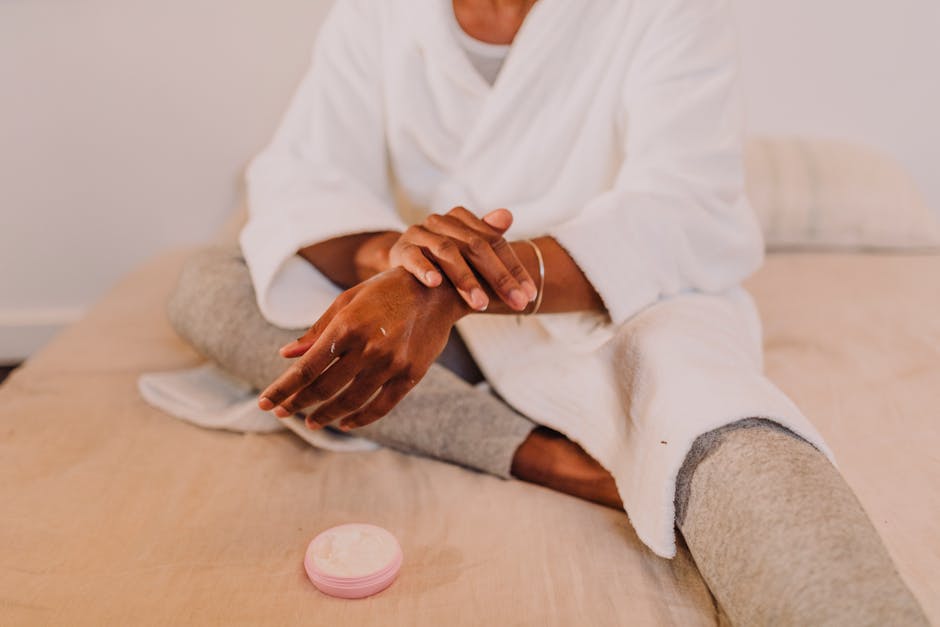
Often anxiety is diagnosed or correctly identified after unnecessary assessment and diagnostic evaluation. This is due to the elevated level of somatic symptoms of anxiety disorder. Research has shown that untreated elevated levels of anxiety predispose people to other serious health problems. Therefore, with that said, the first step to seeking treatment is to talk to your medical provider to make sure that your symptoms are not due to other physical problems. Of course, If anxiety is diagnosed, a mental health professional can work with you to design the best treatment plan for you. Sadly, many people with anxiety disorder do not seek treatment because they are unaware that anxiety is treatable. As stated earlier, anxiety is among the most common psychiatric illnesses. It is distinguished by the degree of anxiety experienced by the client, the duration of the anxiety, the severity of the anxiety, and the behavioral manifestation seen in the client experiencing the anxiety. It is important, especially important to know that Anxiety ranges from acute state to chronic disorders and they are often associated with physical symptoms such as chest, pain, chest, tightness, weakness, and shortness of breath. In the future, we will explore the diverse types of anxieties that exist, which will include panic, disorder, Agoraphobia, Specific Phobia, Social Anxiety, and Generalized Anxiety Disorder. If you or someone you know is experiencing a medical or mental health emergency, please call 911. You can also call the crisis line number 866, 903 3787, or go to the nearest emergency room for treatment. Our email address is located in the description. Please feel free to send us your broad questions. We will randomly select questions to be addressed in our future videos. Please, like comment subscribe, and share this video with your friends and families. Thank you for reading. I am Dr Ogochukwu Ojiaku. Thank you.
As found on YouTubeAFFILIATE MASTERY BONUS: 6-Week LIVE Series Has Begun!
FunnelMates $46.⁹⁵ Replays are Instantly Available. Want A Profitable Mailing List But Not Sure Where To Begin? We’ll Guide You, Equip You, and even PAY You Cash To Do It!

☃in 5-10 Minutes A Day Using Automation Software and our Time-Tested Strategy See How Your New Site Can Be Live In Just 27 Seconds From Now!

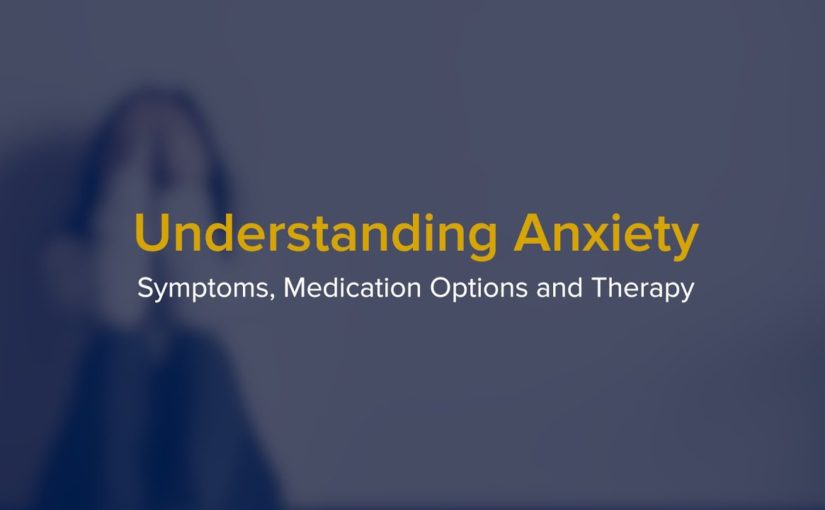


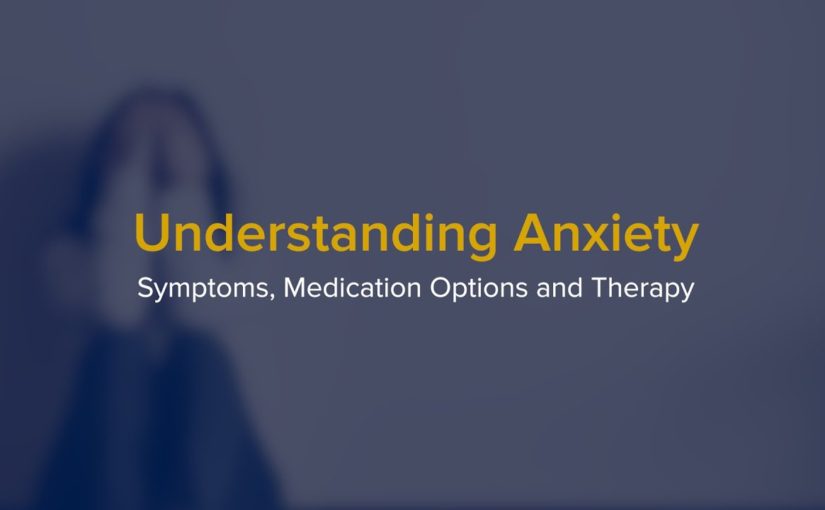
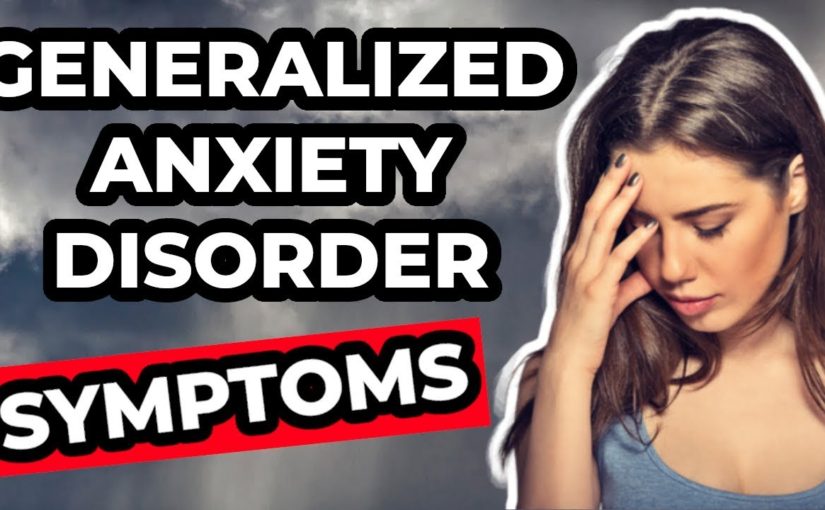



 Often anxiety is diagnosed or correctly identified after unnecessary assessment and diagnostic evaluation. This is due to the elevated level of somatic symptoms of anxiety disorder. Research has shown that untreated elevated levels of anxiety predispose people to other serious health problems. Therefore, with that said, the first step to seeking treatment is to talk to your medical provider to make sure that your symptoms are not due to other physical problems. Of course, If anxiety is diagnosed, a mental health professional can work with you to design the best treatment plan for you. Sadly, many people with anxiety disorder do not seek treatment because they are unaware that anxiety is treatable. As stated earlier, anxiety is among the most common psychiatric illnesses. It is distinguished by the degree of anxiety experienced by the client, the duration of the anxiety, the severity of the anxiety, and the behavioral manifestation seen in the client experiencing the anxiety. It is important, especially important to know that Anxiety ranges from acute state to chronic disorders and they are often associated with physical symptoms such as chest, pain, chest, tightness, weakness, and shortness of breath. In the future, we will explore the diverse types of anxieties that exist, which will include panic, disorder, Agoraphobia, Specific Phobia, Social Anxiety, and Generalized Anxiety Disorder. If you or someone you know is experiencing a medical or mental health emergency, please call 911. You can also call the crisis line number 866, 903 3787, or go to the nearest emergency room for treatment. Our email address is located in the description. Please feel free to send us your broad questions. We will randomly select questions to be addressed in our future videos. Please, like comment subscribe, and share this video with your friends and families. Thank you for reading. I am Dr Ogochukwu Ojiaku. Thank you.
Often anxiety is diagnosed or correctly identified after unnecessary assessment and diagnostic evaluation. This is due to the elevated level of somatic symptoms of anxiety disorder. Research has shown that untreated elevated levels of anxiety predispose people to other serious health problems. Therefore, with that said, the first step to seeking treatment is to talk to your medical provider to make sure that your symptoms are not due to other physical problems. Of course, If anxiety is diagnosed, a mental health professional can work with you to design the best treatment plan for you. Sadly, many people with anxiety disorder do not seek treatment because they are unaware that anxiety is treatable. As stated earlier, anxiety is among the most common psychiatric illnesses. It is distinguished by the degree of anxiety experienced by the client, the duration of the anxiety, the severity of the anxiety, and the behavioral manifestation seen in the client experiencing the anxiety. It is important, especially important to know that Anxiety ranges from acute state to chronic disorders and they are often associated with physical symptoms such as chest, pain, chest, tightness, weakness, and shortness of breath. In the future, we will explore the diverse types of anxieties that exist, which will include panic, disorder, Agoraphobia, Specific Phobia, Social Anxiety, and Generalized Anxiety Disorder. If you or someone you know is experiencing a medical or mental health emergency, please call 911. You can also call the crisis line number 866, 903 3787, or go to the nearest emergency room for treatment. Our email address is located in the description. Please feel free to send us your broad questions. We will randomly select questions to be addressed in our future videos. Please, like comment subscribe, and share this video with your friends and families. Thank you for reading. I am Dr Ogochukwu Ojiaku. Thank you.
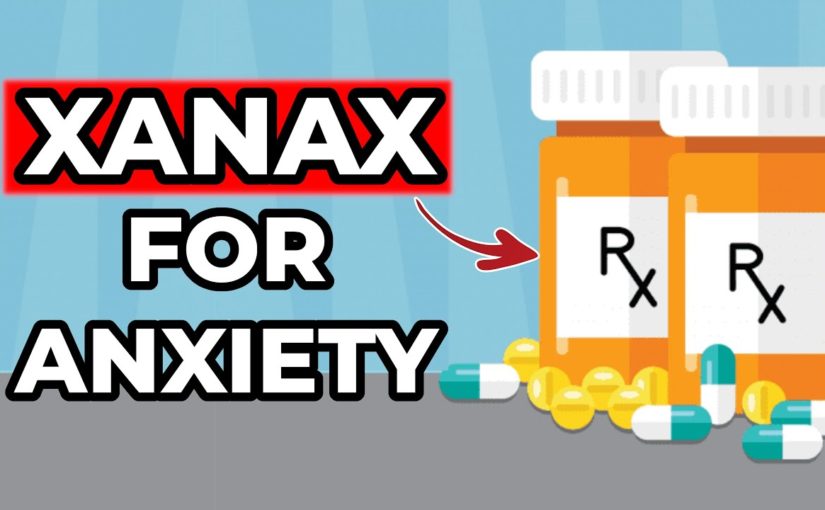
 Some people experience the effects of Xanax within 5 to 10 minutes of taking it, and everyone should feel the effects of it within an hour. Why Xanax is so popular for people struggling with anxiety and panic attacks during a panic attack or anxiety attack. You can take a Xanax and within a few minutes you should start to feel the symptoms of your attacks fade away. The effects of Xanax are brief. Most people feel the strongest impact for 2 to 4 hours after taxing it. However, you may feel a fuzzy feeling for several hours after that It s also possible to build up a tolerance to Xanax. If that happens, then you may notice it takes longer for you to feel the effects and the effects may wear off more quickly. Xanax has a half-life of about 11 hours, which means by that time your body will eliminate half of the dose from your bloodstream. So should you take Xanax for your anxiety, As you’ve heard, and seen in this video Xanax is extremely beneficial in removing the symptoms of anxiety and panic. Attacks such as a racing heart feeling out of control and restlessness. If you think Xanax could help you, please see a doctor and get a prescription, never self-medicate or take it recreationally.
Some people experience the effects of Xanax within 5 to 10 minutes of taking it, and everyone should feel the effects of it within an hour. Why Xanax is so popular for people struggling with anxiety and panic attacks during a panic attack or anxiety attack. You can take a Xanax and within a few minutes you should start to feel the symptoms of your attacks fade away. The effects of Xanax are brief. Most people feel the strongest impact for 2 to 4 hours after taxing it. However, you may feel a fuzzy feeling for several hours after that It s also possible to build up a tolerance to Xanax. If that happens, then you may notice it takes longer for you to feel the effects and the effects may wear off more quickly. Xanax has a half-life of about 11 hours, which means by that time your body will eliminate half of the dose from your bloodstream. So should you take Xanax for your anxiety, As you’ve heard, and seen in this video Xanax is extremely beneficial in removing the symptoms of anxiety and panic. Attacks such as a racing heart feeling out of control and restlessness. If you think Xanax could help you, please see a doctor and get a prescription, never self-medicate or take it recreationally.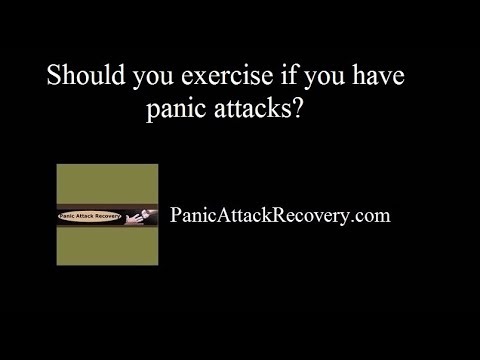
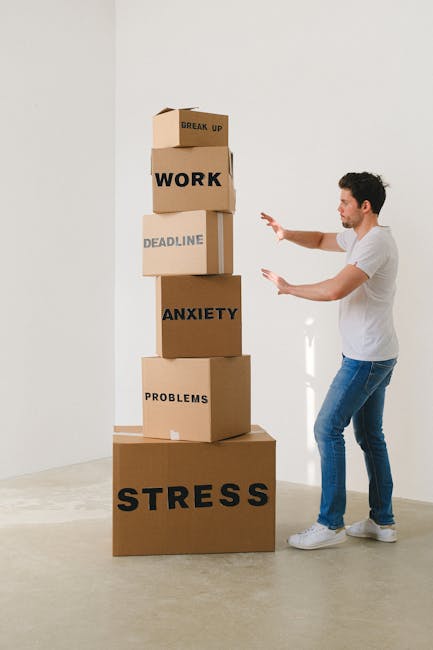 We think that realizing the connection between
exercise and panic attacks can be very helpful not only because of the reasons above. But the reason is that exercise allows you
to be in a controlled situation where are increasing your pulse. This demonstrates that you can deal with an
increased pulse – an increased pulse, as you are no doubt aware, is often one of the
concerns the sufferer has during a panic attack. I would like to mention a study completed
at Charite University Medicine in Berlin. This study found that 50% of subjects who
completed 30 minutes of daily aerobic exercise were able to avoid having a panic attack in
the experiment. Researchers wrote: “Our results for the
first time suggest that exercise has an acute anti panic activity.” Pretty good evidence for a correlation between
exercise and panic attacks. So what’s cool: The energy that one
might have invested in their anxiety, in the past, can be redirected to their well-being
through exercise. This realization in itself can make one feel
better. Be sure to
subscribe to our channel and like our videos if they are helpful to you. Please feel free to share our videos with
others who may benefit from them. Your communication is important to us. If you have any questions or comments, please
feel free to leave them in the in comments below. To get started with more help you can join
our free newsletter at:
We think that realizing the connection between
exercise and panic attacks can be very helpful not only because of the reasons above. But the reason is that exercise allows you
to be in a controlled situation where are increasing your pulse. This demonstrates that you can deal with an
increased pulse – an increased pulse, as you are no doubt aware, is often one of the
concerns the sufferer has during a panic attack. I would like to mention a study completed
at Charite University Medicine in Berlin. This study found that 50% of subjects who
completed 30 minutes of daily aerobic exercise were able to avoid having a panic attack in
the experiment. Researchers wrote: “Our results for the
first time suggest that exercise has an acute anti panic activity.” Pretty good evidence for a correlation between
exercise and panic attacks. So what’s cool: The energy that one
might have invested in their anxiety, in the past, can be redirected to their well-being
through exercise. This realization in itself can make one feel
better. Be sure to
subscribe to our channel and like our videos if they are helpful to you. Please feel free to share our videos with
others who may benefit from them. Your communication is important to us. If you have any questions or comments, please
feel free to leave them in the in comments below. To get started with more help you can join
our free newsletter at: 
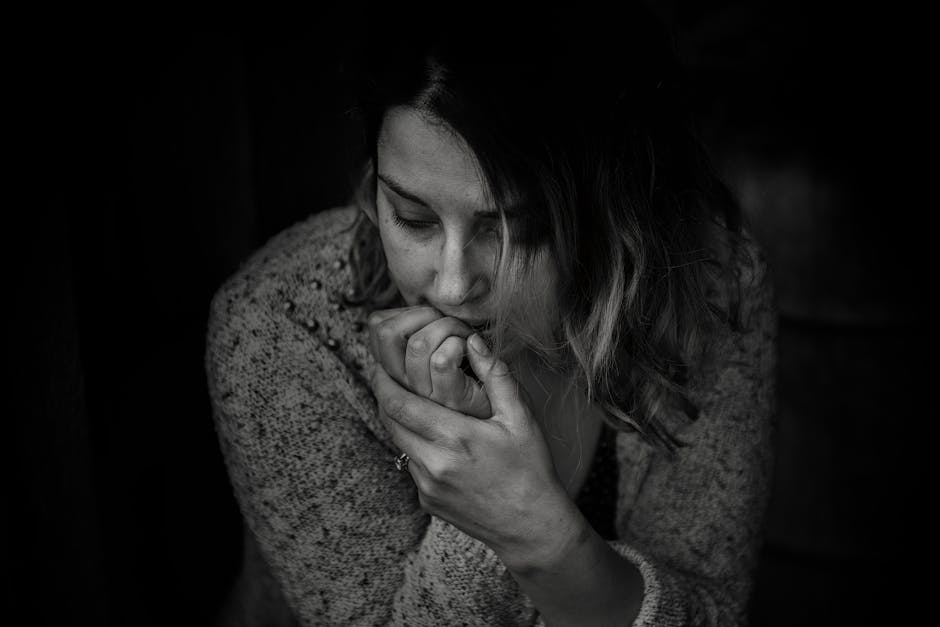 By practicing this suggestion over time you
will get better at it. Often anxiety sufferers can be helped by learning
how to be gracefully assertive in their relations with others. By learning polite assertiveness, you can
decrease your anxiety across several situations. We hope that you have enjoyed this video. To get more help with your anxiety, and obtain instant access to the 5 steps to
recovery from panic attacks and agoraphobia, just visit our website and provide your email
address. All of our information is free. Please visit our website at
By practicing this suggestion over time you
will get better at it. Often anxiety sufferers can be helped by learning
how to be gracefully assertive in their relations with others. By learning polite assertiveness, you can
decrease your anxiety across several situations. We hope that you have enjoyed this video. To get more help with your anxiety, and obtain instant access to the 5 steps to
recovery from panic attacks and agoraphobia, just visit our website and provide your email
address. All of our information is free. Please visit our website at